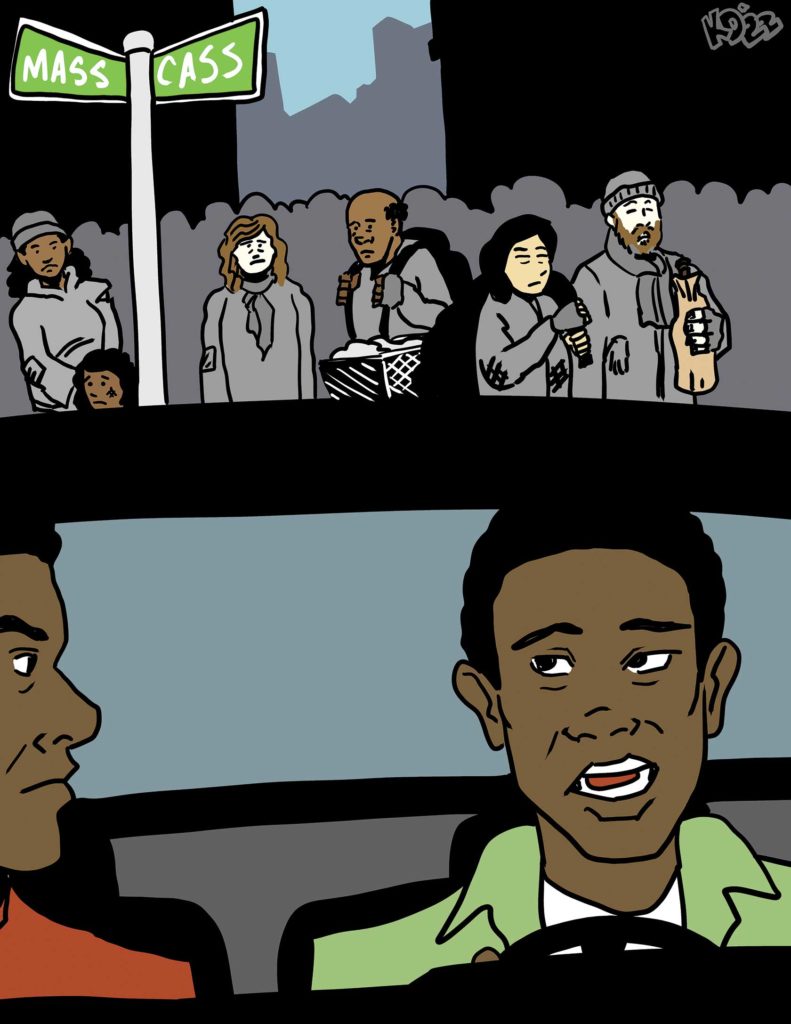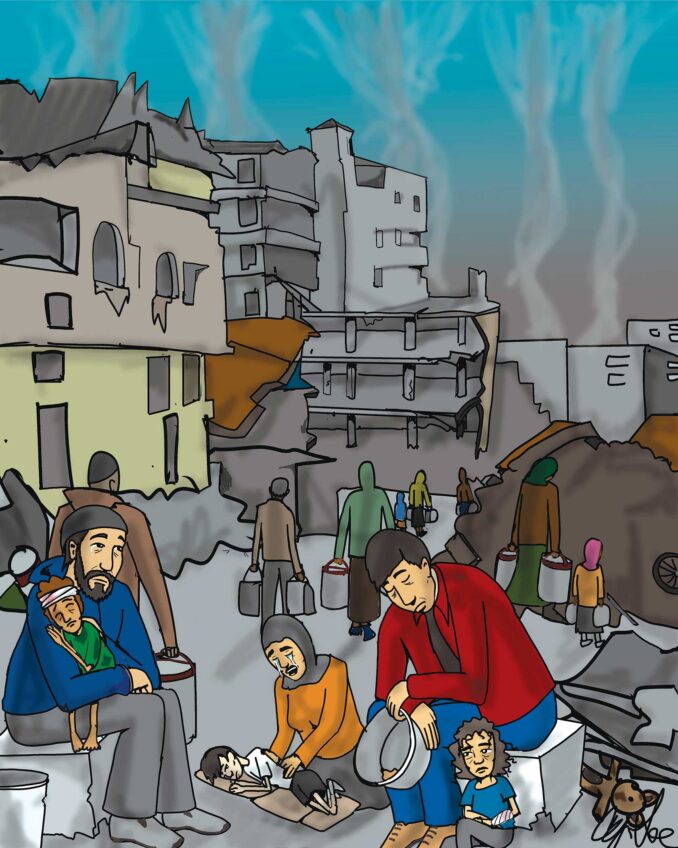
There is no neighborhood in Boston that homeowners believe can be improved by the location there of homeless people or drug addicts, even those in the process of becoming healthy because of treatment. However, there are undoubtedly some Black citizens who may be tolerant of the assignment of such residents as their neighbors. The generations of racial abuse in America have made Black people more sympathetic to those who suffer because the American dream has been a nightmare for them.
Nonetheless, few Black Bostonians who are diligently on the path to personal prosperity have yet acquired the financial resources to be indifferent about the social and economic level of neighbors. Such a casual attitude would be attributable primarily to those in public policy, whose main interest is merely to get the problem out of sight. But there is little doubt that a number of homeless people and drug addicts such as those found at the Mass and Cass area could cause a deterioration in the stature of residential areas.
Analysts and economists agree that the primary source of wealth for most Black families is the market value of the residential real estate that they own. After the home mortgage is paid off, Black people will have the capital to invest in business ventures or establish a retirement fund. Consequently, one of the most significant financial issues confronting Black people is to maintain the market value of their homes.
The homeless people and drug addicts camping out at Mass and Cass is a major blight. The strategy to remove this blight seems to be to find housing for small groups of the afflicted. However, most homeowners are less than eager to accept as neighbors groups of residents from Mass and Cass. A tentative proposal is to expand the residency at the Shattuck hospital on Morton Street, but that plan will generate community opposition for several reasons.
First, Shattuck hospital is at the southern end of Franklin Park, so the new residents would be in frequent contact with families out for recreation in the public park. Secondly, Shattuck hospital is contiguous to Jamaica Plain and the Cruz real estate housing development adjacent to Morton Street. Both areas provide upscale, middle-class-oriented housing.
Boston’s housing supply is inadequate. Blacks coming to Boston for professional level jobs or for college education have noted that the city does not have an upper-middle-class residential community that is predominantly Black, as in Atlanta, New York or Chicago. While the quality of some housing would meet that standard, the indiscriminate location of modest-income housing reduces the standard.
There is inadequate housing available for those now living at Mass and Cass without creating a social problem in Roxbury and other Black communities. The solution lies in finding a way to utilize the City of Boston facilities at Long Island in Boston harbor. With the bridge removed, access would have to be by ferry. While there is much concern about deterioration in some of the buildings, competent construction crews could complete the necessary repairs in a few months.
The rehabilitation of the homeless and the drug addicted should not be the sole responsibility of Boston taxpayers. There should be financial support from the state government as well as federal programs.
Even while the rehabilitation of facilities on Long Island is underway, the City of Boston must close Clifford Park in Roxbury to drug users. It is common practice in Boston to close some parks in the evenings. With Roxbury Prep about to build a new school on Proctor Street adjacent to the park, it is time to clear up the area.






